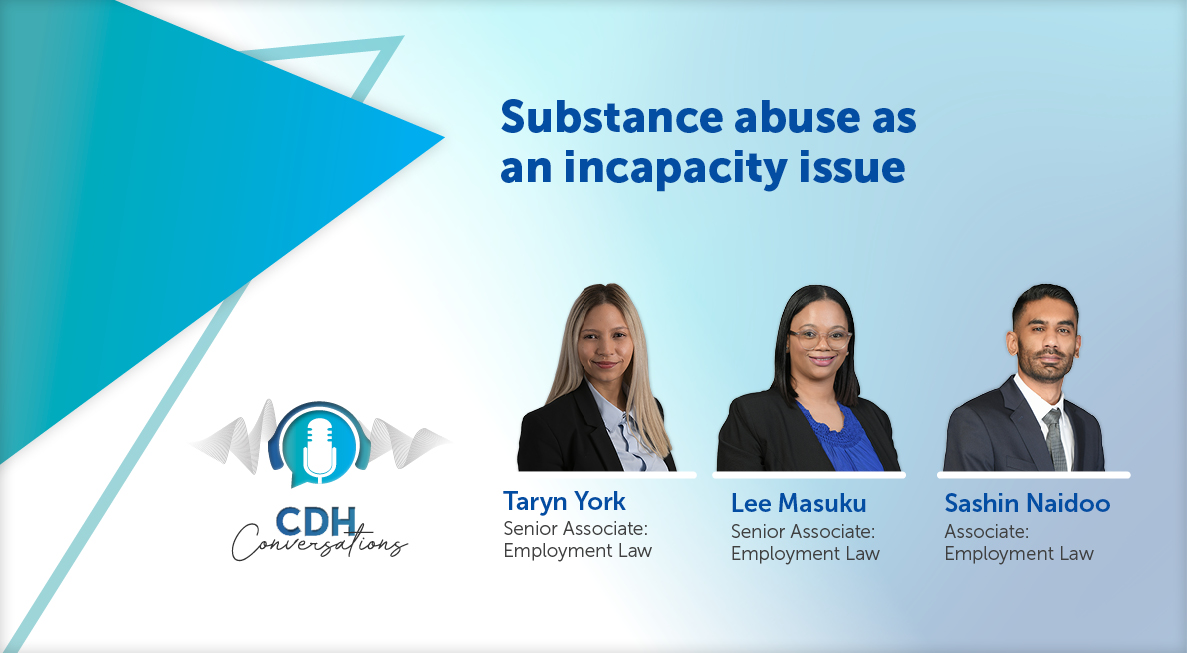Breathing space for mines as Department of Water and Sanitation relaxes tailing lining requirements
On such example is the Department of Water and Sanitation’s (DWS) blanket approach over the last three years in requiring mines to install lining systems for mine residue deposits and stockpiles (MRDSs) as a condition to obtaining a water use license (WUL), even if the MRDS is not hazardous and will cause minimal impacts to water resources. The costs of such lining systems can amount to millions of rand and could result in mining projects being economically unviable and the loss of the mining project’s socio-economic benefits.
The DWS has recently agreed to provisionally apply a risk based approach when processing mining WUL applications (WULAs), which will offer temporary relief to a financially stressed mining sector. Representations made by the Chamber of Mines influenced the DWS’s decision to alleviate the challenges faced by the mining industry caused by its blanket approach.
The National Environmental Management: Waste Act, No 59 of 2008 requires the Minister of Environmental Affairs to set national norms and standards for, among other things, waste storage, and the planning and operation of waste disposal facilities. National Norms and Standards for the Assessment of Waste for Landfill and National Norms and Standards for Disposal of Waste to Landfill (collectively Norms and Standards) were published in August 2013, together with the Waste Classification and Management Regulations. The Norms and Standards set stringent requirements for the design of containment barriers for landfills included in applications for waste management licenses.
The DWS sought to extend the applicability of the Norms and Standards beyond the intended scope, making WULs under the National Water Act, No 36 of 1998 conditional upon installing lining systems as containment barriers for MRDSs. This catch-all approach is problematic, as it fails to have proper regard to the actual impact of the MRDS on water resources and whether the MRDS constitutes waste. The approach has also been criticised as the Norms and Standards were drafted for landfill disposal containing waste material that can, in nature, differ significantly from mineral waste.
The incorporation of the Norms and Standards into the WULA process therefore resulted in significant wasted costs where MRDSs did not adversely impact on watercourses and caused significant negative financial consequence for the mining sector.
The frustration of the mining sector was evident when Aquarius Platinum brought a High Court application in 2015 seeking the review of the DWS’s reliance on the Norms and Standards. Aquarius Platinum had applied for a WUL to deposit tailings generated by its mining activities into a pit. The DWS refused to grant the WULA unless a lining system was installed. The court’s focus was, however, directed to an alternative issue and it postponed the review proceedings on the lining issue. The application therefore failed to provide certainty on whether the DWS can apply its blanket approach.
During the course of this year the Chamber of Mines has met with DWS, proposing the application of a risk based approach when processing WULAs relating to MRDSs. According to the DWS the “Chamber of Mines illustrated the occurrence of unintended consequences when applying norms and standards for landfills to MRDS material”. The DWS therefore made the decision to, on a case-by-case basis when processing WULAs, consider whether alternative proposed barrier systems will prevent water resource pollution and have the equivalent effect of the barrier systems prescribed in the Norms and Standards.
The decision will have interim application, as the DWS recommended that the Department of Environmental Affairs amend the regulations relevant to MRDSs to ensure alignment of decisions between the two Departments.
The temporary relief is nevertheless to be welcomed by the mining sector, as mines are currently free to employ a more suitable and cost-effective approach in preventing pollution of water resources by MRDSs.
The information and material published on this website is provided for general purposes only and does not constitute legal advice. We make every effort to ensure that the content is updated regularly and to offer the most current and accurate information. Please consult one of our lawyers on any specific legal problem or matter. We accept no responsibility for any loss or damage, whether direct or consequential, which may arise from reliance on the information contained in these pages. Please refer to our full terms and conditions. Copyright © 2026 Cliffe Dekker Hofmeyr. All rights reserved. For permission to reproduce an article or publication, please contact us cliffedekkerhofmeyr@cdhlegal.com.
Subscribe
We support our clients’ strategic and operational needs by offering innovative, integrated and high quality thought leadership. To stay up to date on the latest legal developments that may potentially impact your business, subscribe to our alerts, seminar and webinar invitations.
Subscribe




